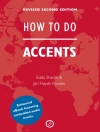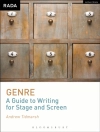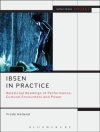This second volume of Alfred Hitchcock’s reflections on his life and work and the art of cinema contains material long out of print, not easily accessible, and in some cases forgotten or unknown. Edited by Sidney Gottlieb, this new collection of interviews, articles with the great director’s byline, and ‘as-told-to’ pieces provides an enlivening perspective on a career that spanned seven decades and transformed the history of cinema.
In writings and interviews imbued with the same exuberance and originality that he brought to his films, Hitchcock ranges from accounts of his own life and experiences to provocative comments on filmmaking techniques and cinema in general. Wry, thoughtful, witty, and humorous—as well as brilliantly informative and insightful—this volume contains much valuable material that adds to our understanding and appreciation of a titan who decades after his death remains one of the most renowned and influential of all filmmakers.
François Truffaut once said that Hitchcock ‘had given more thought to the potential of his art than any of his colleagues.’ This profound contemplation of his art is superbly captured in the pieces from all periods of Hitchcock’s career gathered in this volume, which reveal fascinating details about how he envisioned and attempted to create a ‘pure cinema’ that was entertaining, commercially successful, and artistically ambitious and innovative in an environment that did not always support this lofty goal.
Jadual kandungan
Acknowledgments
Introduction
Stories and Suspense
Introduction
The Henley Telegraph Stories
The Woman’s Part (1919)
Sordid (1920)
And There Was No Rainbow (1920)
What’s Who? (1920)
The History of Pea Eating (1920)
Fedora (1921)
Good-night, Nurse! (c. 1922–23)
Hitchcock on Stories (1937)
Lights! Action!—but Mostly Camera! (1941)
Hitchcock, Master Maker of Mystery (1941) – Beth Twiggar
Introduction to Intrigue: Four Great Spy Novels of Eric Ambler (1943)
The Quality of Suspense (1945)
The Film Thriller (1946)
Death in the Crystal Ball (1950)
The Wise Man of Kumin (1951)
The Chloroform Clue: My Favorite True Mystery (1953)
‘It’s the Manner of Telling’: An Interview with Alfred Hitchcock (1976) – Anthony Macklin
Pure Cinema and the Hitchcock Touch
Introduction
Titles—Artistic and Otherwise (1921)
How a Talking Film Is Made (1929)
Why I Make Melodramas (1937)
Some Thoughts on Color (1937)
The ‘Hitch’ Touch (1946)
Encounter with Alfred Hitchcock (1956)
Charles Bitsch and François Truffaut
Alfred Hitchcock Murders a Blonde (1958)
My Favorite Film Character Is—ME! (1959)
A Lesson in PSYCHO-logy (1960)
Rear Window (1968)
On Directors and Directing
Introduction
An Autocrat of the Film Studio (1928)
A New ‘Chair’ Which a Woman Might Fill (1929) – Roger Burford
A Columbus of the Screen (1931)
Britain Must Be Great (1932)
The Man Who Knew Too Much (1956)
Hitchcock on Truffaut (1962)
Declaration of Alfred Hitchcock (1967)
Interview with Alfred Hitchcock (1973)
Hitchcock at Work
Introduction
Making Murder! (1930)
Hitchcock’s Notes on Stage Fright (c. 1950)
Interview with Alfred Hitchcock (1955) – François Truffaut and Claude Chabrol
Alfred Hitchcock Brings His Directing Techniques to the Medium of Television (1955)
Hitch: I Wish I Didn’t Have to Shoot the Picture (1966) – Budge Crawley, Fletcher Markle, and Gerald Pratley
Hitchcock Speaks
Introduction
Hitchcock Speaking (1956)
Women (1959)
Alfred Hitchcock Resents (1962) – Bill Davidson
The Chairman of the Board (1964) – Richard Gehman
John Player Lecture (1967)
Interview: Alfred Hitchcock (1978) – R. Allen Leider
Selected Bibliography
Acknowledgments of Permissions
Index
Mengenai Pengarang
Sidney Gottlieb is Professor of Communication and Media Studies at Sacred Heart University in Fairfield, Connecticut. He coedits (with Richard Allen) the Hitchcock Annual, and his books include Hitchcock on Hitchcock: Selected Writings and Interviews, Volume 1; Alfred Hitchcock: Interviews; and Roberto Rossellini’s ‘Rome Open City.’












